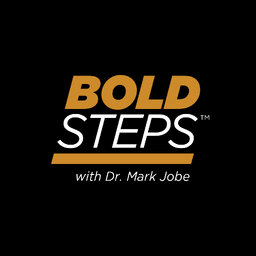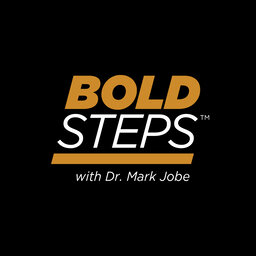Making Decisions the Faith Way – Part 1
Today on BOLD STEPS with Pastor Mark Jobe, we’ll explore how to make decisions by faith rather than sight. Learning to live and make decisions spiritually can be difficult for those of us who are A-type personalities … or those who feel like they need to control everything. We want to instantly fix problems when we see them. But faith often forces us to turn to God, admit our weakness, if causes us to rely on Him. We’ll see that in Abraham’s story in Genesis, chapter 13. Our message is titled, Making Decision the Faith Way … and it comes from our series called, Don’t Stop Believing.
Bold Steps with Dr. Mark Jobe
Bold Steps with Dr. Mark Jobe takes you on the path to freedom and authenticity in Christ. With cand…Social links
Follow podcast
Recent clips

Making Faith Work -- Part 2
26:00

Making Faith Work -- Part 1
26:00

Treating People Right -- Part 2
26:00
 Bold Steps with Dr. Mark Jobe
Bold Steps with Dr. Mark Jobe
